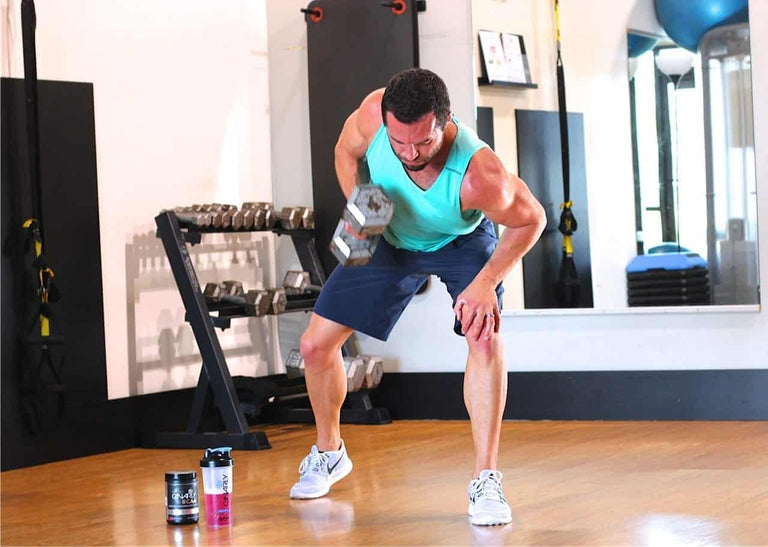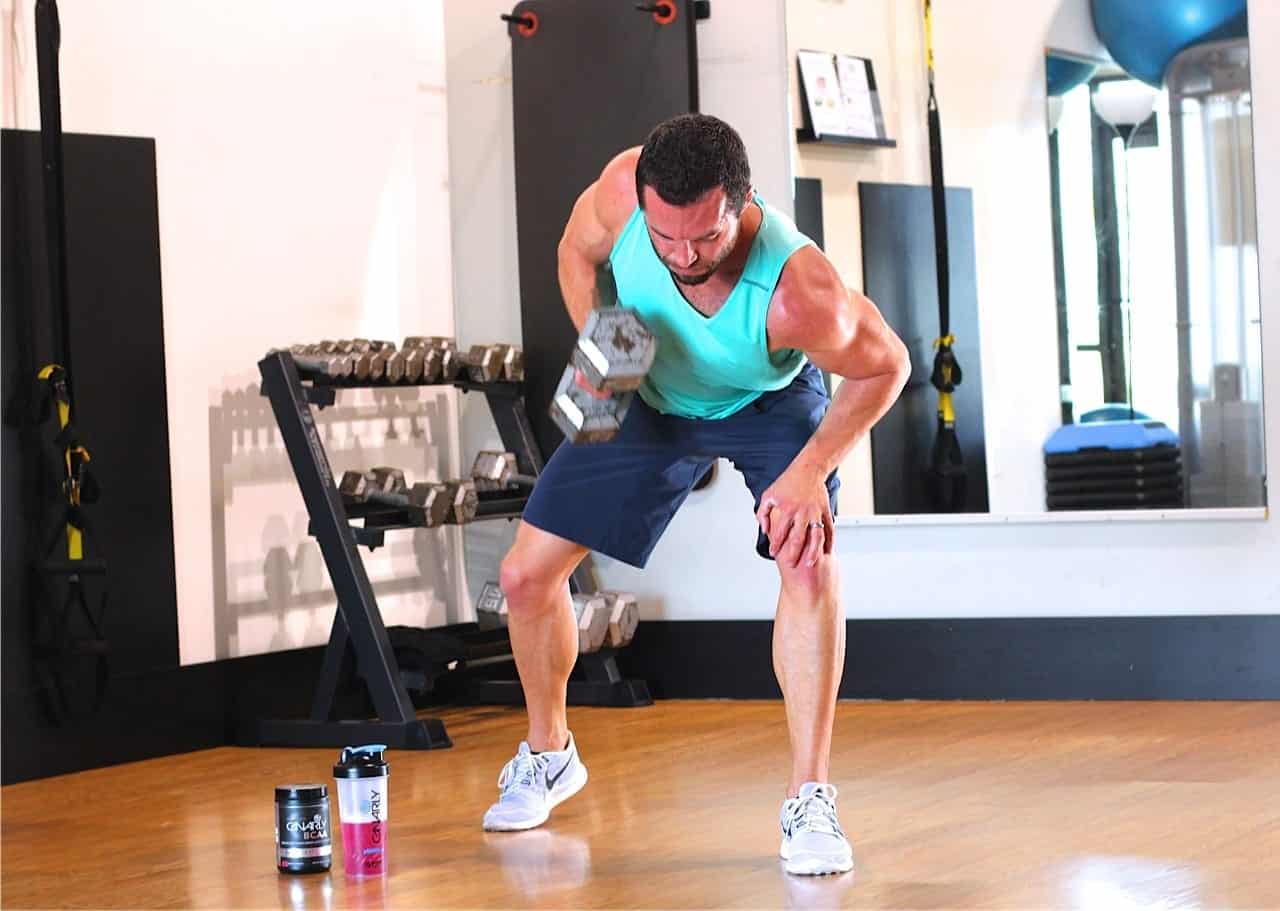If you’re an athlete whose performance depends on body weight, then you probably believe that your body weight—and particularly your fat—is a significant factor in your performance. After all, you have to carry all that weight, and no matter how strong you are that weight will still influence your strength-to-weight ratio, right?
Well, yes and no. As one half of the “strength-to-weight” equation, it’s obvious that weight must play some role, but truly, there is no scientific consensus that it plays a significant role—and there is a solid, logical reason for why it probably doesn’t.
A Couple Quick Clarifications
I’ll get into why bodyweight is less significant than you might believe in a bit, but first we need to clarify a few things.
First, we’re talking about relatively minor weight loss, not significant weight loss. If you are overweight or obese, the athletic gains you’ll make by reaching a normal weight are likely to be profound—possibly more profound than any other training goal, depending on your current athletic status.
Since “minor” and “major” are vague and subjective, we need to define them concretely to avoid confusion. I typically call weight loss of less than or equal to 5% of your total weight as “minor”, and anything more than 10% as “major”. I admit, these are mostly arbitrary figures—but they give appropriate scope to the relative difference between a 160 lb male dropping to 155 lbs and a 220 lb male dropping to 190.
Second, this article is more geared towards strength and power athletes whose performance is tied to body weight and strength-to-weight ratio. If you are an endurance athlete, then a relatively minor loss of weight could significantly increase your performance because the relatively small advantage is compounded over hours of exertion (I say “could”, not “will”, because I haven’t looked at the research). At the very least, body weight is likely to play a greater role for endurance athletes than for strength and power athletes.
Finally, in all cases we’re assuming that any weight lost does not place you below the lower limits of healthy body fat—about 3-5% for men and 12% for women. If losing fat causes you to drop to an unhealthy body fat level, then the consequences on your health will be far greater than any (probably non-existent) gains to performance.
Okay, let’s move on.
The Idea: Train Heavy, Perform Light
At a certain point, most athletes realize that they need to specialize their training to continue improving in their sport. It’s no longer enough to just do the sport, they need to improve their strength in ways that doing alone cannot achieve.
Depending on the sport, this might mean adding strength training, or swimming with a drag suit, or training with a weight vest. Regardless of the method, however, all effective training methods work by forcing the body to adapt to conditions that are more rigorous than are normally encountered.
When the body adapts, it does so in two ways:
- The muscles get wired better (neurological improvement), which allows the muscles to act in greater unison and perform a greater amount of work more efficiently.
- The muscles grow in size (morphological improvement), which improves their actual mechanical limits.
Through muscular adaptation, your body gets stronger, more powerful, and more efficient, all of which can then be transferred to whatever sport you pursue. Did you get used to swimming with a baggy suit on? You’ll be that much quicker in a race suit. Used to climbing at 10 lbs over your normal weight? When it’s time for that red point attempt, you’ll feel light as a feather wafting up the wall.
Of course, training under extra rigorous conditions would be worthless if we couldn’t return to normal conditions afterwards, but the beauty of “training heavy” is that you can reduce your encumbrance back down to zero—so why not go an extra step and reduce your weight further? That way you can train heavy and perform even lighter for even more benefit, right?
Let’s first consider an analogy, then examine why this hypothesis is flawed.
Nickels in the Headset
In the American version of the office, there’s an amusing scene where Jim pranks Dwight by causing him to smack himself in the face with his telephone. Jim accomplishes this by slowly adding nickels to Dwight’s headset over the course of months and then one day removing them all at once.
The basic idea behind the prank is that you can force neurological adaptation in the victim’s muscles without their conscious awareness. Fine-grained movements require precision, and precision requires neurological inhibition in the muscles so you can use the exact fraction of strength necessary to smoothly perform a task. When you suddenly change one side of the equation, the nerves don’t have the chance to smoothly adjust and perform the task with too much power. Telephone, meet face.
(This is why chimps are so much stronger than humans, by the way—they lack this form neurological inhibition and as a result use significantly more of their muscle fibers in any given task. This is great for feats of strength, but not so great for using complicated tools.)
Given enough time, your nerves will adjust to the new normal, whatever that normal is. You can make a telephone feel light as air by adding nickels, or you can make your body feel 15 lbs lighter by training with heavy loads. In either case, you improve power by disinhibiting the muscle—and in the case of training, that improved power translates to improved performance
Now think about what happens when the reverse occurs. What happens when instead of adding nickels to the telephone, you slowly take them out?
The exact same thing—your nerves adapt. But instead of gaining more power because you can remove that weight all at once, you’ve just made that lighter weight the permanent new normal. There’s no extra power here.
Okay, so this is only anecdotal so far, but the basic idea should be clear: the advantage of training heavy is that you instantly remove the weight that your nerves and muscles have adjusted to, resulting in muscles that are less inhibited and therefore capable of significantly greater force production. But neurological adaptation is always happening, and it doesn’t just go one way—in fact, a significant part of that adaptation is limiting our power so that we can do movements smoothly and efficiently. When weight is reduced gradually, then you give your nerves ample time to adapt to the changing conditions, and the result is a complete lack of net change.
Thus, the “light” in “perform light” isn’t really about being light, it’s about being light relative to your normal condition. If you lose weight and don’t compensate for any lost weight with greater training stimuli, then you won’t be any lighter relative normal—you’ll be lighter, but training lighter too. There’s no net change, and no advantage.
Okay, Some Science Now
Unsurprisingly, there aren’t many studies on reverse neurological conditioning. We know tons about positive neurological adaptation because it’s fascinating to see how humans improve their performance, but it’s decidedly less interesting to study why humans lose performance. As a result, we have only scant information on the topic, but what we do have is enough to mount at least a basic defense of the “lighter is not better” hypothesis.
One of the earliest defenses came in the mid 1980s from a study on basketball players. In basketball, vertical jump height is an important skill, and it was discovered that using “hypergravity conditions” (making the players train with a weight vest) resulted in a 24% improvement in vertical jump height when that weight vest was removed. So far, so good—that’s a significant increase! Unfortunately, though, those effects faded after about a month of not using the weight vest in training, and vertical jump height returned to normal. The scientists behind the research determined that most of the changes in power were neurological in origin—without continued stimulus, those neurological gains are lost quickly.
A more recent example can be extracted from a study on the effects of rapid vs. slow weight loss on various exercises, including bodyweight-dependent exercises like countermovement jumps and sprinting. Both groups lost an average of 6% of their body weight (or roughly 9 lbs), but the fast group did so in about 4.5 weeks while the slow group took 9 weeks. According to the “lighter is better” hypothesis, we should have seen an improvement in both groups when it came to sprints and jumps—but that’s not what happened. Instead, we saw an improvement only in the slow group, and only in the countermovement jump. Why? Most likely because the slow group gained 2 lbs of muscle alongside their weight loss, and that extra muscle mass increased their power.
Let me put it a little more clearly:
- The rapid weight loss group lost 6% of their bodyweight, which amounted to losing 7 lbs of fat and half a pound of muscle. They didn’t improve in either the sprint or the countermovement jump (but did make slight gains in their 1 rep max squats, pulls, and presses).
- The slow weight loss group lost 6% of their bodyweight, which amounted to losing 11 lbs of fat and gaining 2 lbs of muscle. They didn’t improve in the sprint, but did gain almost an inch on their countermovement jump (and also improved significantly over the other group in their 1 rep max squats, pulls, and presses).
And here’s one last example: in a study done on judo athletes, a loss of 4% bodyweight over 4 weeks resulted in zero improvements for either squat jumps or countermovement jumps, nor did it improve performance of judo movements.
In short, in studies that examine the effects of weight loss on bodyweight movements, weight loss by itself has no discernible effect—no group that only lost weight experienced any increase in any bodyweight-dependent exercises. By contrast, the group that gained muscle (even while they lost weight) did improve in bodyweight-dependent exercises, suggesting that increasing total strength is the more important factor in improving one’s strength-to-weight ratio.
Astronauts, Hypogravity, and Atrophy
Let’s approach this from one last angle: space travel.
Once we began shooting men into space, we discovered that they returned home with atrophied muscles and soft bones. As it turns out, our muscle mass and bone mass are highly influenced by the pressures we exert on them. On earth, where gravity is a significant force (“weight” is just the effects of gravity on our mass), we develop strong bones and muscles to support our frame. In space, where gravity isn’t a significant force, our muscles and bones atrophy because they’re apparently unnecessary.
Granted, astronauts are a special case—no matter how hard someone might try, no one will ever become permanently weightless here on Earth. But humans also didn’t evolve in space, indicating that these adaptations are not specific to zero gravity but rather to weight loss in general. When we lose extreme amounts of weight (as through a loss of gravity), we lose extreme amounts of strength; when we lose small amounts of weight, we lose small amounts of strength. Either way, the body adapts to the new conditions.
The Big Picture
Here’s a quick recap of what we’ve learned so far:
- Adaptation is a response to training stimulus, and comes in two forms: neurological and morphological. Neurological improvements are responsible for most of our gains in strength and power, and are gained and lost relatively quickly.
- Neurological adaptation is constantly fluctuating depending on what your normal conditions are. When you increase the stimulus, such as by superficially increasing weight, then you become less neurologically inhibited and therefore stronger and more powerful. When you decrease the stimulus, such as by losing weight, you become more neurologically inhibited in order to exert more precise control.
- In studies done on the effects of weight loss, there is no significant improvement to bodyweight exercise performance. Only in groups that simultaneously gain muscle (morphologically adapt) does bodyweight exercise performance improve.
- In extreme weight loss conditions (hypogravity conditions), humans lose significant amounts of strength as well as muscle and bone mass. This is a normal physiological response to reduced weight, just as increasing weight through weight training improves both muscle and bone mass.
Now you may be thinking of some reasons why this may be false.
You may, for example, argue that studies also consistently show that body fat percentage can be used to predict athlete performance—but we might expect that because both leanness and performance are tied to hours spent training. If you train hard and long, you tend to be leaner.
You might also argue that losing weight doesn’t always affect your training stimuli. And you’re right, it doesn’t always—but if it doesn’t affect at least some of your training, then your sport is probably not terribly dependent on your bodyweight in the first place, and dropping bodyweight won’t improve your performance.
The fact is, every time you lose weight, you reduce all aspects of your training that rely on your bodyweight for adaptation. If you’re a climber and you lose 10 lbs, then you’ll be pulling at 10 lbs less every time you get on the wall. If you’re a sprinter and you lose 10 lbs, you’ll be squatting at 10 lbs less than whatever weight you’d be using had you not lost that weight. You might feel lighter, and your performance may have improved, but it’s due solely to normal training adaptations—not reduced weight.
The bottom line is that minor weight loss is unlikely to be helpful. If you’re within 5% of the normal weight for athletes in your sport, you’re not going to suddenly become better by leaning up. If you’re within 10%, there are probably better things to focus on, and there’s a good chance you’ll get leaner just by training harder (while continuing to eat enough to support your performance goals). Only if you’re 10% or more over the typical weight of an athlete of your height in your sport is it likely you’ll experience benefits purely from weight loss—so unless this applies to you, focus more on getting stronger and less on losing weight!



